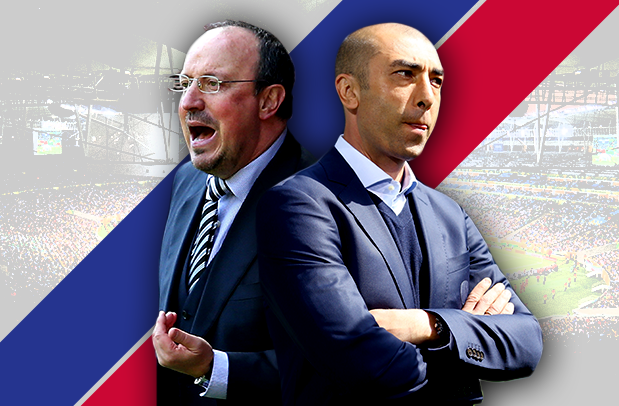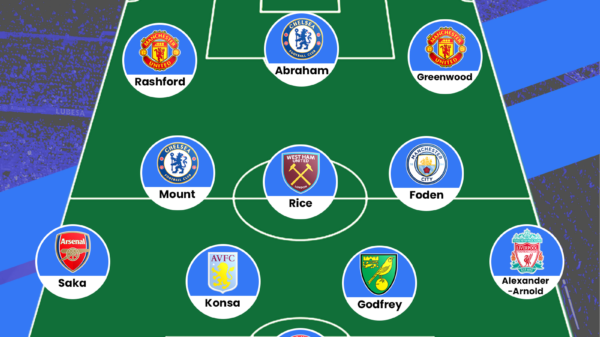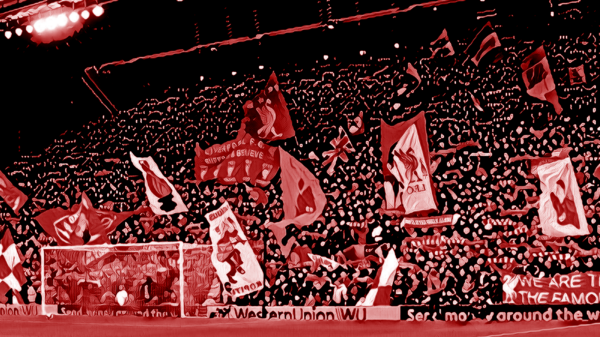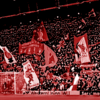Jeffrey Gamby-Boulger argues about whether or not the most compelling football league in England is the Championship.

Since the inception of the English Football pyramid as we currently know it in 1992, English football has always operated within a very rigid, very strict hierarchy of power and quality.
At the very top is the international behemoth, the commercial powerhouse and footballing nirvana coveted worldwide that is the Premier League. Dominated by the best of the best, from all corners of the world it is a league of ferocious intensity, some of the most passionate and famous fans and stadiums in the world, and an unequivocal and unapologetic influx of foreign talent both on the pitch and off it.
The Premier League has grown into the world’s greatest domestic showpiece for the sport that we love, full of drama, pedigree, tradition and some of the most memorable moments in the history of the sport. Combined with some of the greatest teams and managers ever to grace the game, as well limitless passion pouring from each adoring fan base, it becomes clear why the Premier League has snowballed into the commercial beast it is today.
But what of the tiers below? Have they been forgotten and left behind in the wake of the superior Premier League? Have they been mothballed by a once promising and genuine attempt to provide a clear structure and footballing philosophy to the cacophony of passion that is English football?
The answer fortunately is rather the opposite, but no less appeasing. While England’s top flight garners some of the biggest names, characters and sponsorship deals in the business, the leagues below have been left to adopt a uniquely British core and identity in their quest to satisfy their individual fan bases. Without the financial pulling power of the Premier League, top level talent is at a premium meaning clubs are left to blood British talent and search the markets for promising youngsters from the giants above to adopt on loan. But developing talent for bigger clubs, who may never even integrate these potential stars into their first teams, is a strategy that seldom pays off for lower league teams.
Find a talented youngster, develop him at your own cost, and in return receive a player that may or may not hold the quality and experience to actively improve your team for a season. If not, then at the end of the loan deal the parent club receives a player who can still be sold or farmed out to another potential league rival the following campaign again. It is this ironically earmarked ‘mutually beneficial’ relationship that fuels many teams without the financial power to adopt any other strategy. It is a landscape very different from what the mainstream audiences are used to. Here, loan signings and domestic deals hold as much dominance as foreign signings. Players that flit between the lower tiers, occasionally tasting the Premier League, or simply become specialists in the leagues below are the crux of most teams.
This is a familiar trend that continues down each tier, with the financial muscle of each division atrophying alarmingly. It leaves little option but to promote home grown talent and local youngsters. In the absence of eye-watering sponsorship deals and a chunk of the incredible TV rights deal on offer to top level clubs, the Football league has evolved a uniquely British identity, completely at odds with the cosmopolitan top flight.
Inevitably, this has pros and cons. The Premier League unquestionably has technically better players and greater commercial impact. But for all its glory and style, it remains a national subject of critique every season for its lack of a winter break, its pampered and lazy players are lambasted weekly and with such financial rewards on offer, the pressure to get results threatens to asphyxiate the joy at the very heart of the sport so many care about, suffocating the roots of English football.
While the riches to be gleamed reach astonishing new heights every season, it has transformed a once promising ideal into a self-serving and cash generating commercial colossus, where the often cited ‘best league in the world’ drains the majority of footballing and financial resources from the British footballing pyramid in its evolution into the monster it is today.
For the leagues below, in the absence of European flair and cuteness, what has been fostered in its place is an unprecedented level of intensity, combativeness and ironically, the sort of effort that is required to take the sacred and fabled step-up into the promised land of top flight football. There are no lavishly paid superstars and no luxurious egos seeking constant adulation for their exploits. At this level, the roots of English football are still evident, still enjoyed, and more importantly, still appreciated.
Yes, one must acknowledge that the best players do bring a level of technical quality one simply cannot replicate further down the pyramid, and no-one could legitimately argue that the Football League has totally abandoned the traditional kick and rush style that has hampered the national identity of English football for generations.
But for sheer graft, true passion, thrill and undiluted entertainment, unquestionably the Football League still has an awful lot to offer to the purists of the game, and the forgotten cornerstone of the sport we love – the fans.
For the Premier League, despite the negative aspects of producing such a worldwide product, and its negative knock-on effects to the lower leagues, there is one overlooked positive in having such a predominant domestic league.
While the top flight continues to draw the headlines and best players, arguably its greatest achievement is spawning an even more competitive league before it, a predecessor that has helped drive the frenetic battle to join the top league, a 46 game battle that cannot be equalled in terms of difficulty or sheer excitement anywhere in the world. In this sense, England’s finest export is not the Premier League; it is the 46 game marathon to get there – The Championship.
And in the wake of the Premier League’s new £5.14 billion TV right deals, conversely this has never before been more apparent. With Newcastle United and Aston Villa relegated after two disastrous seasons, it looked like two of England’s finest clubs, two mismanaged sleeping giants, would be taking the step down with little or no confidence of ever returning. However, fast forward to the present, and these two behemoths that find themselves swimming as the biggest fish in an already big pond, are joined by two Champions League winning managers. And despite Newcastle losing 1-0 at Craven Cottage in their season opener, both are heavily tipped as favourites to make an immediate return to whence they came.
So how has this happened? How could two continental Champions League winning managers agree to manage such underperforming enigmas in such a notoriously difficult second tier, out of Europe and out of the Premier League? One would be forgiven for suggesting that such high profile appointments must surely be fuelled by a financial narrative, as opposed to any benevolent footballing decisions. Perhaps they have been well and truly tempted by an eye-watering reward for steering their sinking ship back to the Premier League. Perhaps they will succeed in their mission; perhaps they will be gone by Christmas.
But, the more prominent questions on the lips of many is have Rafa Benitez and Roberto Di Matteo taken a step down, or has the Championship taken a step up? Have they relinquished their aura as trophy winners to take the helms of such great clubs as fallen idols? Or has the knock-on effect of the Premier League’s new TV rights deal created a new era wherein maybe, just maybe, England’s second tier is becoming more enticing for prospective suitors?
Rafa Benitez is one of the most respected and successful managers of his generation. A serial trophy winner, he has experience in three domestic championships, winning silverware at every club he has managed in England, Italy and Spain. Twice a Spanish Segunda División winner, and twice a La Liga winner with Valencia, he is one of the very few managers to successfully split the La Liga duopoly of Barcelona and Real Madrid. He has also won domestic trophies with Inter Milan, Napoli and Liverpool, as well as tasting Euro League success with Chelsea and that famous Champions League win in Istanbul during his time on Merseyside proving a highlight of a glorious career so far.
When one also considers he has been voted UEFA manager of the year twice, and chosen as the Premier League manager of the month on no less than six occasions, his decision to pledge his loyalty to Newcastle United in their current predicament cannot be overlooked. Rarely would such a manager make such a decision, and it has been a move welcomed by many. The man who started last season managing arguably the biggest club in the world in Real Madrid, and arguably the biggest player in the world in Cristiano Ronaldo, now finds himself lining up against teams such as Sheffield Wednesday and Huddersfield.
His counterpart is Roberto Di Matteo, who while it must be said cannot boast accolades that come close to his Spanish adversary, he can at least lay claim to being the manager who finally brought Champion’s League success to Stamford Bridge, and more importantly, to Roman Abramovich – an achievement that cannot be dismissed regardless of how much input the Italian arguably had.
So, with such managerial experience now destined to take to the stage in England’s second tier, how much should we read into such grandiose appointments? And what reasons could possibly entice a Champions League winning manager to manage in The Championship?
Perhaps it is the example of Rafa Benitez that stands out the most prominently. The Spaniard was handed the reins at St. James Park with just 10 games to save the North East giants, a task he was ultimately unsuccessful in doing. But even in that short tenure he was able to re-energise a squad low on confidence and crippled with a losing mentality, to end the season on a six game unbeaten streak. After relegation for the magpies was confirmed, there were the inevitable whispers of how Rafa would approach his future, but shortly afterwards it was finally announced – and what all fans of the famous club had hoped came to fruition. Benitez was staying.
However, in order to provide the conditions to which Rafa would be willing to stay, there were significant caveats to his appointment; and this is where his motivation for plying his trade in the second tier of English football becomes evident. Benitez is an astute businessman, both on and off the field, and would not have agreed to stay without significant guarantees, and guarantees written in writing. Owner Mike Ashley and Managing Director Lee Charnley, the powerbrokers culpable so far for The Magpie’s slow stagnation over the last decade, had to agree to relinquish total control of all football related matters to the Spaniard. A high price, but one they agreed to.
And this doesn’t just relate to first team affairs. Everything from the ground up, from renovating and reorganising the training pitches at Newcastle’s Benton training ground, restructuring the club’s academy, and of course, that rare and sought after commodity in club management – final say on player transfers in and out of the club if the price is right.
These were Rafa’s terms, and Mike Ashley subsequently bequeathed them to him. Despite public utterances that relegation was not on the agenda for the Tyneside club last season, and an £80 million spending spree to prove it, subsequent relegation will have sharpened his focus. He was finally ready to scrap the club’s previous flawed structure and transfer committee, with a man he trusts to take control and drag the sleeping giant where it belongs. And there is no doubting Rafa’s pedigree to do just that.
A man of his stature has won virtually every accolade in club football available to him, and will be financially secure for the rest of his life. And yet, standing on the sidelines of St. James Park will have given him the taste of the one thing that could still lure him – simply put, the challenge of making Newcastle successful again. If such a club can sell out their stadium having just been relegated, then the potential if they were to taste any level of success is something any knowledgeable football fan can simply imagine. He would be a hero for generations, just like Kevin Keegan and Sir Bobby Robson before him are still idolised to this day.
During the final home game of last season, Newcastle’s famous old stadium was in full chorus as fans unanimously sang for Rafa to stay during the whole match. A man as cold and calculated as Benitez is wise enough to not let public perception affect his managerial choices, but such an undiluted and passionate outpouring from Newcastle’s faithful was undoubtedly an important factor in his decision to stay. A club of Newcastle’s potential has the capabilities to go as far and high as they want, with a 52,000 strong fan base behind them. What they need is somebody to shake free the shackles of years’ worth of mismanagement and ineptitude, someone who understands the club, their potential, and what needs to be done. The fans knew it straight away – they needed Rafa.
And Rafa needed them too. What better challenge to someone as famously hardworking and dedicated to the sport as Benitez, than to reinvigorate such a potentially massive club from the doldrums of mediocrity, and try to successfully escape the clutches of freefall down the Footballing ladder. Newcastle already have all the tools he required; one of the most spectacular fan bases in world football, a 52,000 strong capacity stadium that is virtually sold-out every game, they have the commercial resources, sound financial footing, and international pedigree. All they needed was the final piece of the jigsaw and fans will be hoping they can finally begin their ascent to where their club should be.
The answer then it seems to why a manger of Benitez’s calibre would commit to a season in England’s second tier, ironically in such a financially incentivised economy, is purely footballing. A big club that needs his guidance, his family live close by from his days on Merseyside, and the opportunity to manage at one of England’s most famous, albeit underperforming clubs.
What Rafa really wanted was a challenge, and few could argue that waking the Tyneside club from its slumber is one of the biggest challenges in English football – and for the sake of one season down below, just one, it starts to become clear why Benitez was ready to taste the glorious intensity of The Championship.
While it could be argued that with the top clubs in England already inundated with high calibre managers leaving his options limited in terms of high profile managerial vacancies, it is also true to say that Rafa and managers of his ilk are football men, they adore the game. The footballing project available to him in the North East was too good to turn down, as long as he got the assurances he wanted.
Only time will tell if Rafa can successfully navigate the rigours of Championship football; it is certainly a world away from the sunshine and glamour of Madrid and a 1-0 defeat to Fulham in his opening game suggests he must learn quickly. But if Rafa’s previous achievements are anything to go by, The Magpies are in for an exciting time ahead. He has the club, the resources and the project he craves, and the fans finally have a manager who can realistically restore their faith. And with Norwich joining Newcastle in the battle to bounce back from their own relegation, Aston Villa fighting to bring stability and success under Di Matteo, and the famous unpredictability of England’s second tier sure to produce more unforgettable moments in the race for promotion, the new season promises to be a bit more special than usual. In that context, it becomes much easier to understand the beauty of the Championship this year.
- Déjà vu on Tyneside: Why Newcastle are being left short-changed by familiar failings - September 20, 2017
- Rafa’s Revolution: Why Newcastle’s promotion from the Championship hasn’t been straightforward - May 4, 2017
- Can John Stones fulfill his potential as a Central Defender or does his future lay elsewhere? - November 16, 2016






























































